5 ways to improve your focus
Staying focused isn’t always as simple as it seems. Life is full of distractions these days, and it doesn’t help that the very things we use for productivity – phones, tablets, and computers – are also the same platforms that provide the most distractions.
Mindfulness and meditation can bring some clarity, but those who have trouble focusing may need to take things a step further. Here, we’ll discuss how to focus better, how to concentrate when it matters, how to stay focused at work, and tell you exactly how to remain focused when you’re using your computer or handheld devices.
How to Stay Focused: 5 Ways
There are many ways to improve your focus, and it often requires a mixture of methods and perhaps knowing when you should focus at all. It’s okay to be distracted so long as it doesn’t interfere with work or schooling! Here are five tips on how to increase focus:
Reduce digital distractions
Your Mac is a powerful device capable of running several apps at once, and that’s a common method for distraction. We end up with so many apps on-screen we lose track of what we’re supposed to be doing, or slow ourselves down by allowing distractions to creep in.
HazeOver may be able to show how to focus better. It’s a really simple Mac app that highlights the window you’re using, and dims the rest of the screen. When you need to focus on a stats like writing, HazeOver can greatly reduce the noise on your Mac’s screen and encourage you to focus on the task at hand.
Other apps will still be live, they will just be forced to the background, and dimmed. You have full control over how dimm background apps are, too. If you need to block them out entirely, that’s possible, but you can also simply send them to the background.
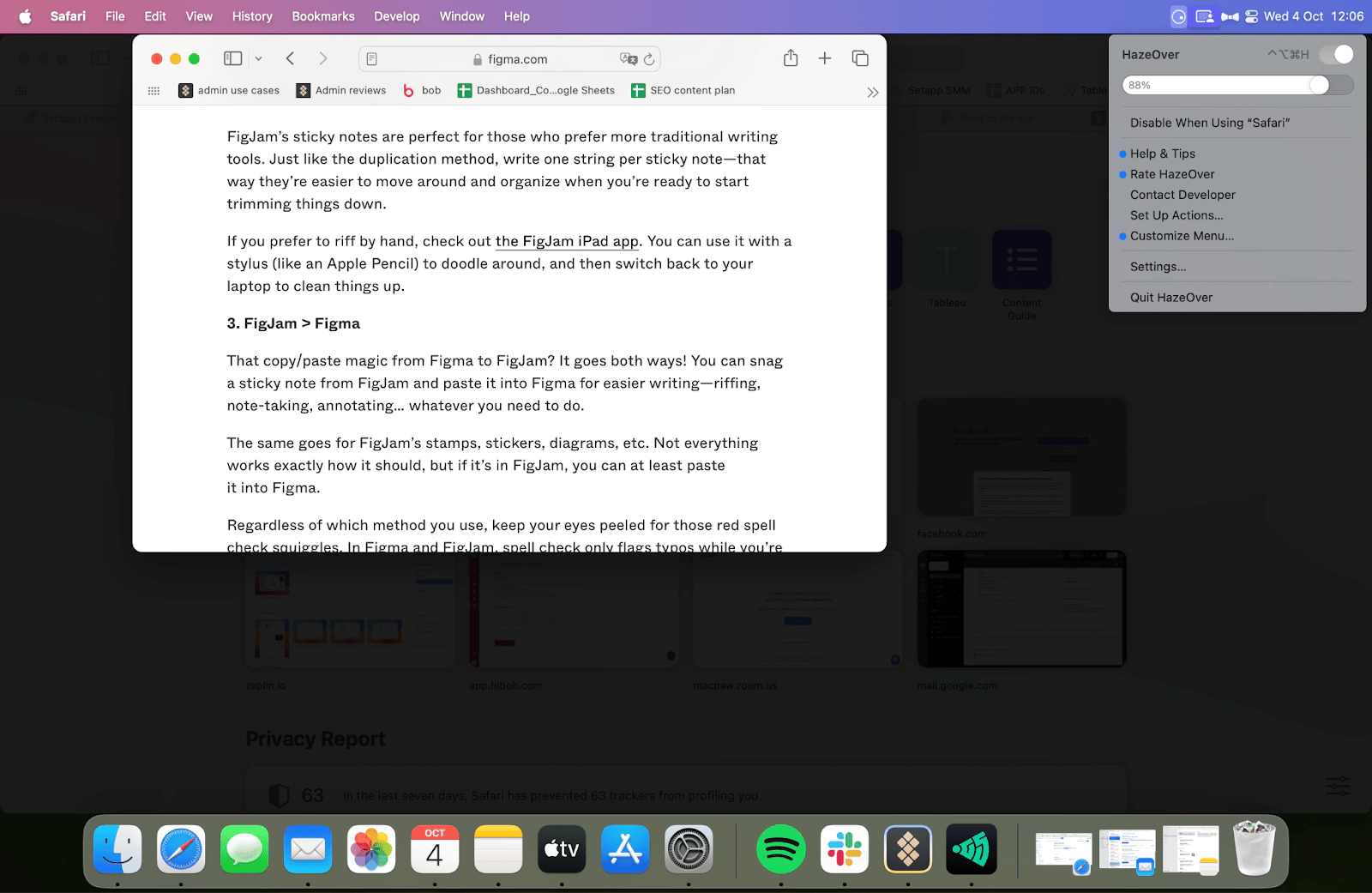
Focused Work is a tool that enables you to work in focused intervals using various focusing techniques. Stay on top of your tasks with dedicated focus sessions and explore work in timed intervals with timers inspired by the legendary Pomodoro, as well as Flowmodoro and more focusing techniques.
Pick the focus session type and start working, while the app takes care of supporting you on your way. Set reminders to start your focus session, choose to block websites and apps to keep your eyes on the prize during your focusing time, and even jot down thoughts or ideas in session Scratch Pad to come back to later when you are not focusing on one task.

Keep task management simple
When you’re searching for answers on how to improve focus, one of the simplest steps may be right in front of you. Task management, like to-do lists, are ways many of us try to keep on task and focused on what we need to accomplish.
But even to-do lists can get clumsy, and cluttered. We try so hard to organize our lives and end up confusing things even more. It’s time to simplify task management, and TaskPaper is a great solution. In a time when to-do list apps are trying to become all encompassing life planners, TaskPaper is keeping things focused on your to-do list.
The app’s simple, clean layout lets you organize lists, but is reminiscent of the days of paper planners. When you finish a task, it simply crosses the task out, and keeps all tasks on-page. You can create headers, and the app does a great job of accepting natural language inputs and works seamlessly with Apple’s Reminders app.
TaskPaper does exactly what you want it to: keeps you focused, and on-task, all the time.
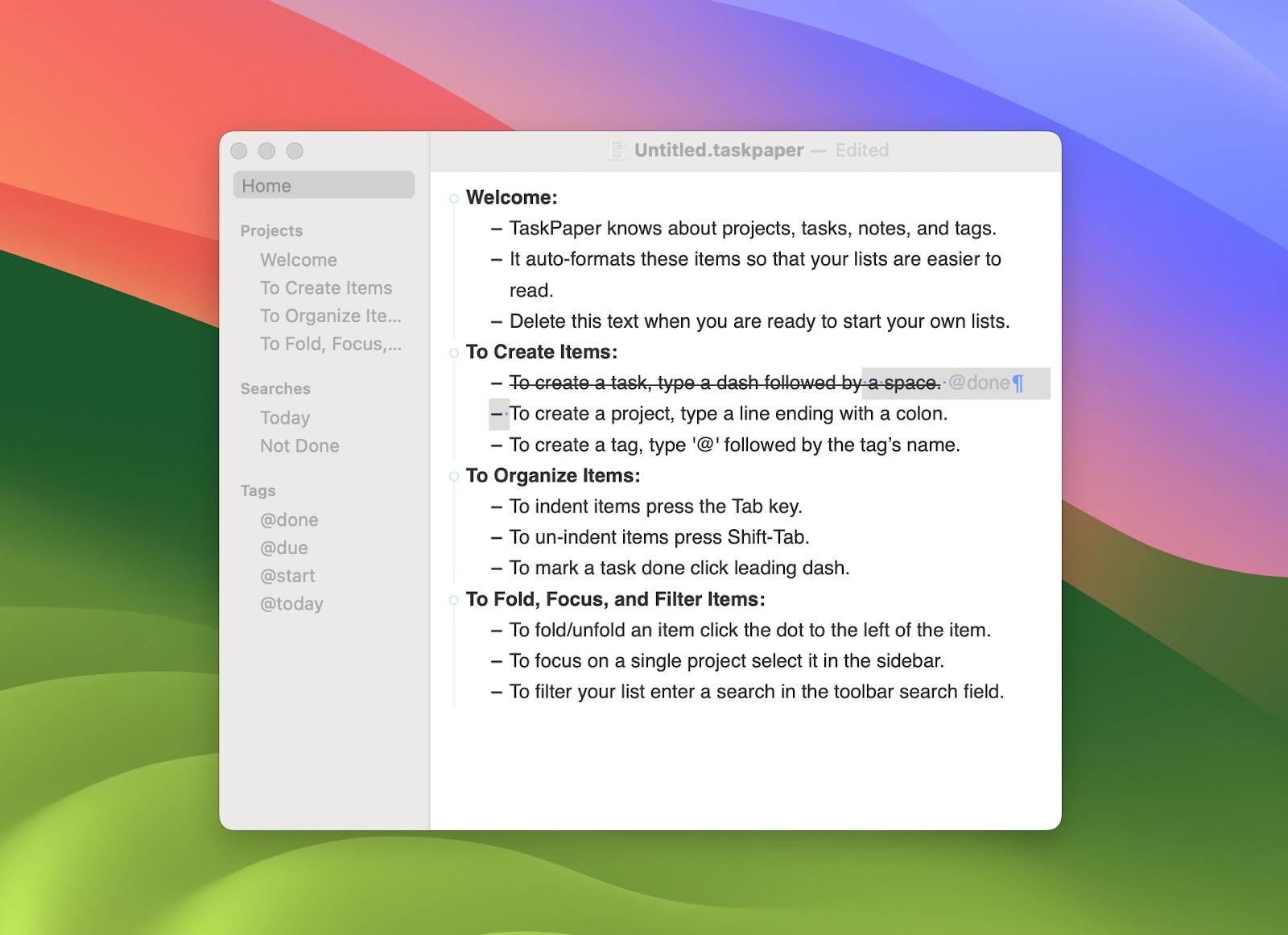
Gamify your time
Have you ever felt lost in your quest to improve and retain focus, and asked yourself “how can i increase my concentration and focus for good?” Well, one simple trick is to make focus a task itself.
In fact, employing the same gamification methods found in mobile games can help you want to focus, which may be the most important first steps you’re missing. Two apps – Timing and Be Focused – can help a ton.
Be Focused is a lot more personal, and great for casual users. When you need to understand how to focus, the app can make it really simple to set time aside and – well, focus! It lives in your Mac’s menu bar, and works across iOS and iPadOS. It lets you schedule time to get work or studying done, and has a very simple to-do list interface for when you’re working. It tracks your time, of course, and has a reporting function so you can see how focused you really are when a week or month ends!
Timing is aimed at freelancers, but is great for anyone. With multiple projects, it’s easy to get distracted, or start working on one project, then feel as though you need to spring back to a separate project to get something done. Timing creates an environment where you feel able to focus on one client or task at a time. It even tracks the apps you use while you’re working on a task or project, and is fully automated so you don’t have to start or stop timers.
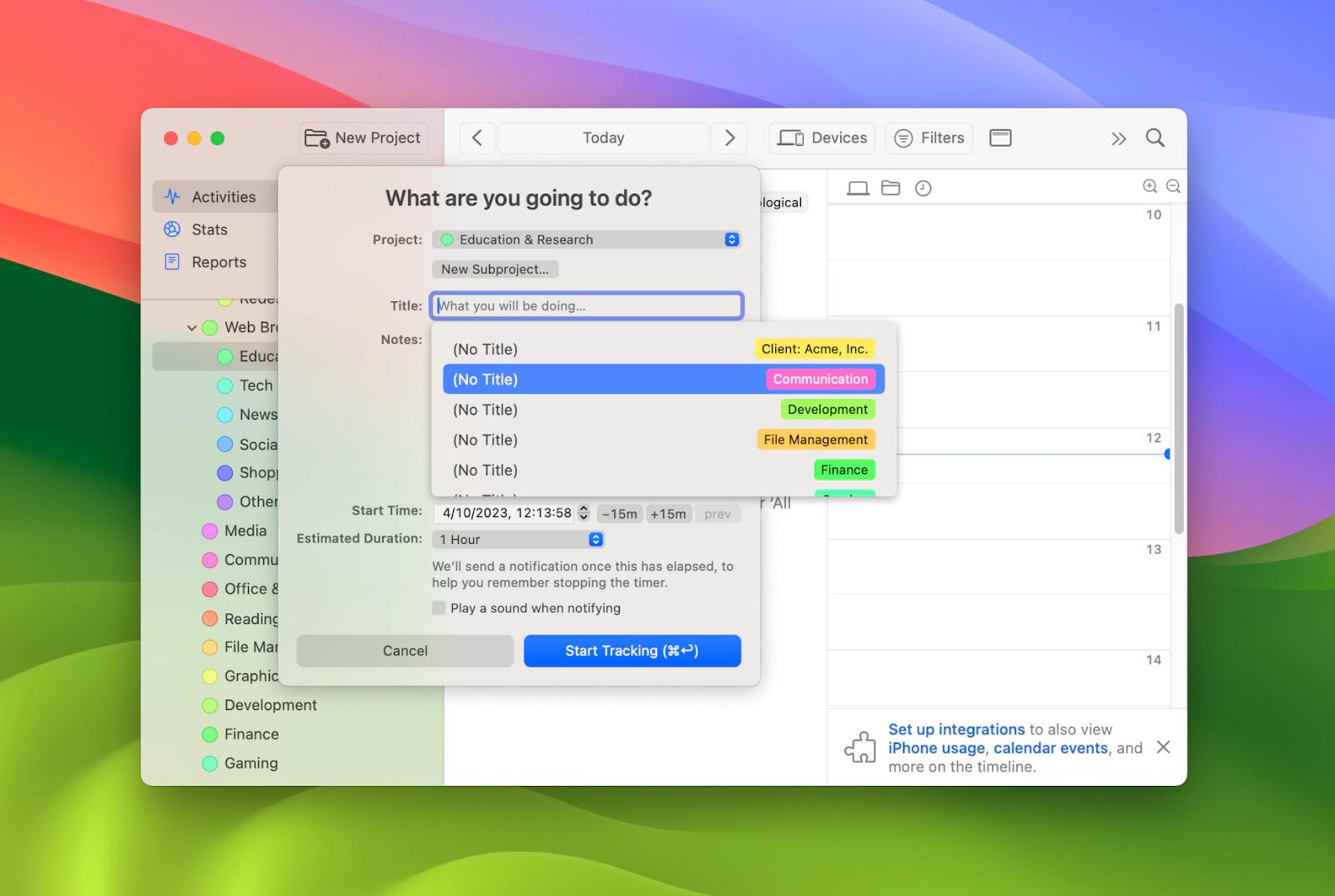
Prepare to focus
One of the things rarely addressed is the anxiety associated with focusing. We spend a lot of time talking ourselves into focusing on a task, and worrying about whether we’re prepared to focus, and it’s draining. When it comes time to actually be productive, many of us are overwhelmed and feel unprepared to accomplish anything. We simply don’t know how to improve focus.
An app named Studies may be able to help. If you’re concerned about how to improve concentration and how to focus on studying, this app may be just what you’re looking for. It’s a digital flashcards app that allows you to make your own cards, which encompasses both sides of the focus debate: you prepare for your own ‘focus sessions,’ and have the tools to be productive when you set time aside to learn.
By preparing your own flashcards, you’re being productive in your downtime, too! Instead of stressing about studying and thinking about how you need to go about learning something, creating flashcards is its on type of preparation. Then, when it’s time to actually learn, you have the flashcards ready. Not only are you increasing your exposure to a topic, you’re creating your own best practices for focused learning.
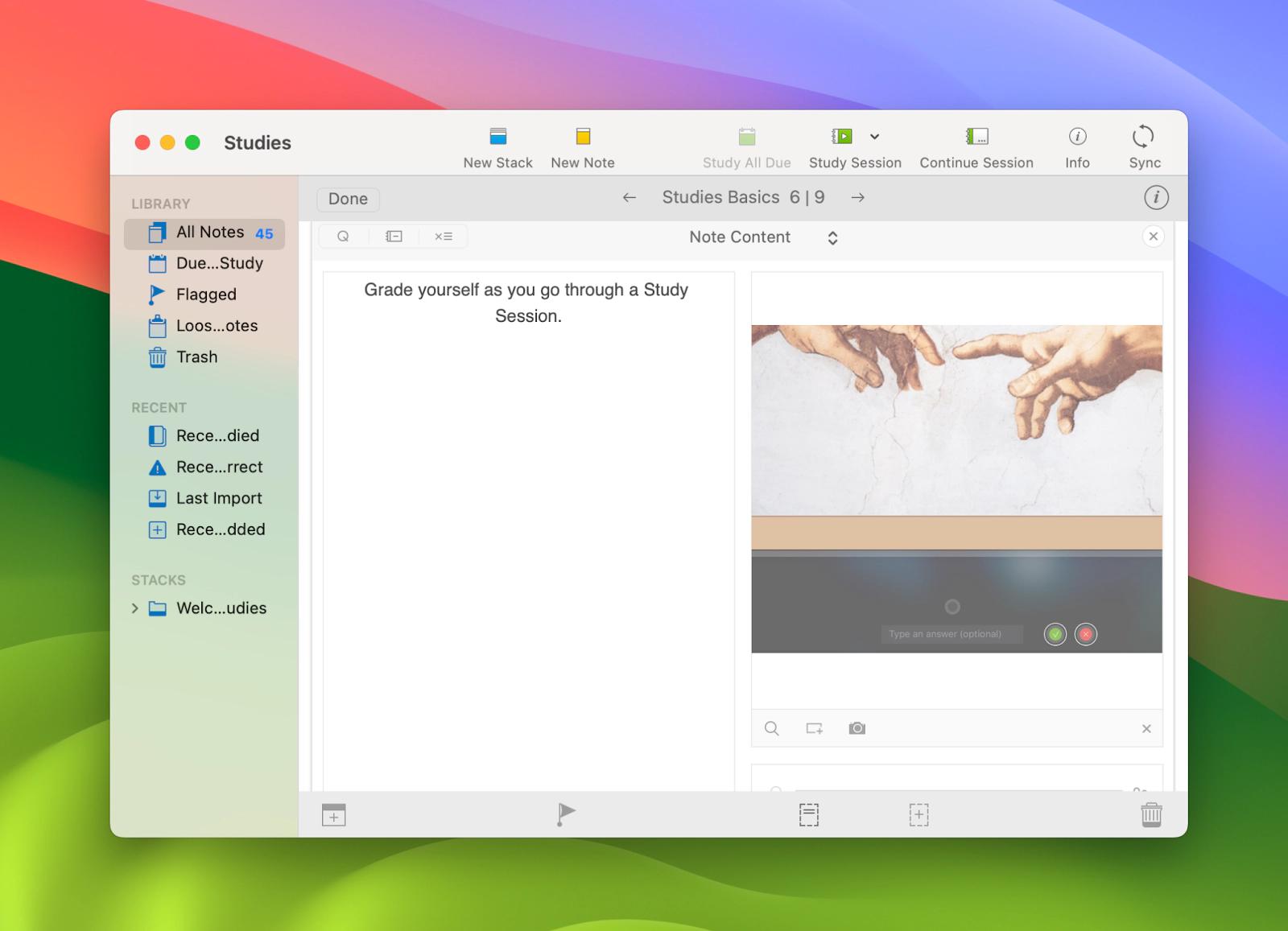
Consider your environment
So often, we associate focus with the thing right in front of us, but the environment can also play a role. Think about it: are you more likely to get work or studying done in a quiet, calm environment, or a noisy, bustling space?
Clariti takes care of your audio environment, helping you maintain unwavering focus on what you do. Press Play and have the app pick a unique AI soundscape that matches your location and weather. You can tweak things to your liking — add environmental layers, for example — but the beauty of the app is in its ability to set the right mood with just a click.
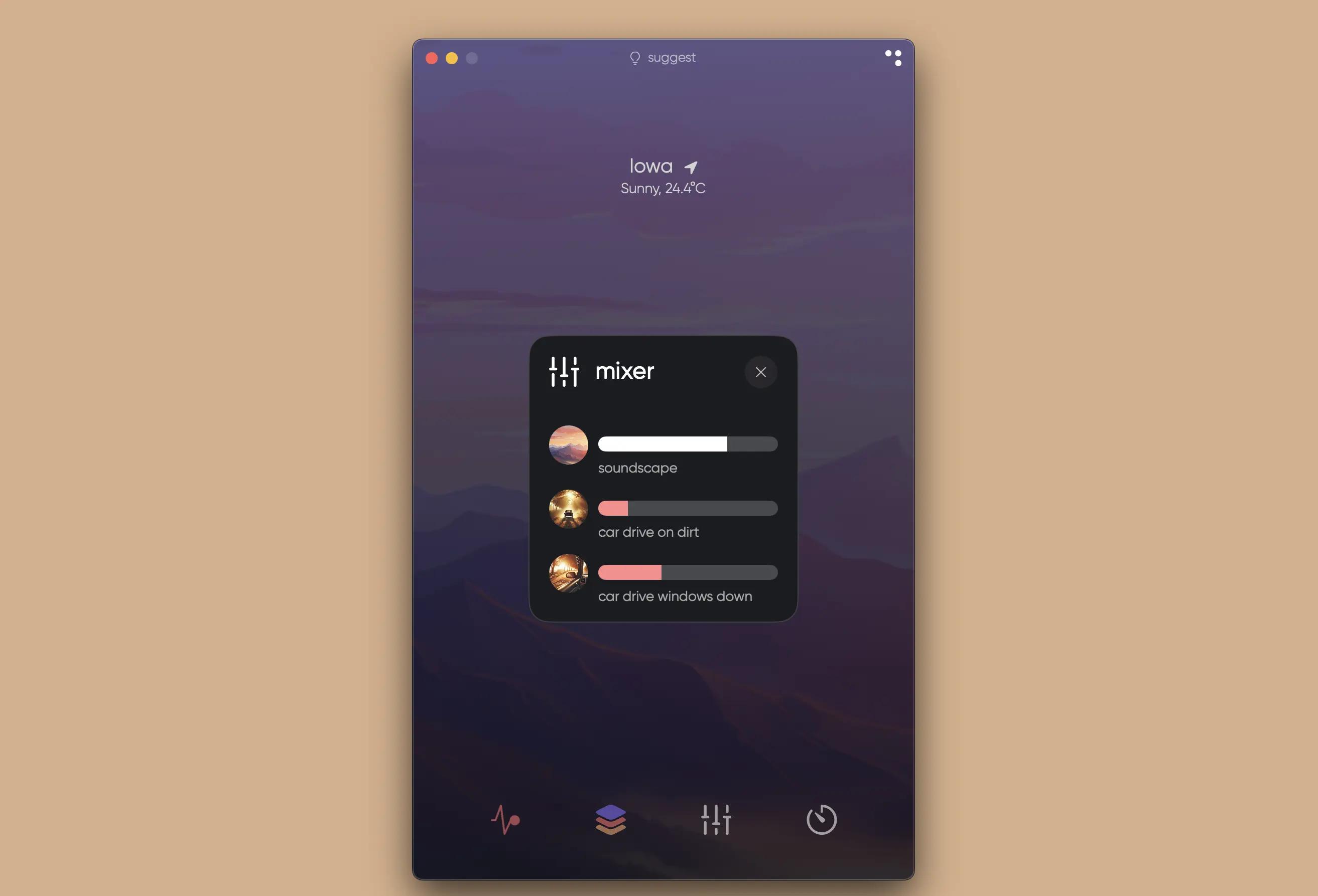
Another thing to consider is your physical space. Keeping it free from clutter can improve focus because you have less distractions. So yes, keep that phone of yours away. And when you’ve found a place to focus on your work or studies, remain there for as long as it takes. You’re done when you feel comfortable that you’ve accomplished what you can for the day, or time allotted. Don’t force yourself to do more than you are capable of!
Conclusion
And when it’s time to focus and be productive, know each of the five apps mentioned here today – Be Focused, HazeOver, TaskPaper, Timing, Studies, and Clariti – are all available for free as a part of a seven-day trial of Setapp, the world’s leading suite of productivity apps for your Mac. You’ll get access to these apps as well as 250+ others during your week-long trial.
When the trial concludes, retaining unlimited access to the entire Setapp catalog is only $9.99 + tax per month. An incredible deal well worth the investment, so give Setapp a try today!





